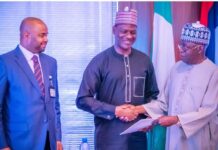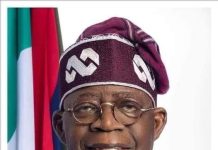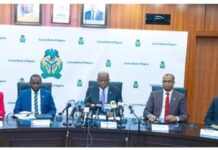By
Victor Osarenren
I was shocked and astounded over the Presidency’s reaction to Oxfam’s report on the high incidence of poverty in Nigeria. There is nothing, just nothing, that is fictitious in the report. Except for persons who live on the moon, Oxfam’s report, if anything, is merely a tip of the iceberg.
I, yours sincerely, had written and published in some national dailies and periodicals about the subject matter in the year 2011. With the indulgence of the indomitable Guardian Newspaper, please find below a reproduction of one of such, published on Friday, July 8, 2011 entitled, “A Nation’s Portrait of Poverty by Victor Osarenren”.

“Reports from the Northern Economic Summit held recently in Kaduna were quite refreshing. Key speakers at the summit such as President Dr. Goodluck Jonathan, Niger State Governor, Dr. Aliyu Babagida Aliyu and Central Bank Governor, Mallam Sanusi Lamido Sanusi bemoaned the pervasive poverty in the Northern States of Nigeria. Nothing new, really. What’s new and quite refreshing, is that the observation came from those at the highest levels of authority in Nigeria. The Nigerian experience for decades is that several persons at the helm of affairs appear to have disdain for the feelings, needs and plight of the citizenry.
While poverty could be said to be endemic in the Northern States and the North East zone in particular (Prof. Charles Soludo and the World Bank made the observation in 2008) it can be said, without any fear of contradiction, that poverty has become domesticated in Nigeria. In fact, it has become indigenous to the country. While the various ethnic nationalities that make up Nigeria can lay claim to specific geo-political areas as their homelands, poverty is everywhere, covering the entire area that is Nigeria.
With the general elections over, it is apt to acquaint the “new men” of one of the most daunting challenges ahead of them.
Nigeria is often referred to as the “Giant of Africa”. This is perhaps with reference to her population which dwarfs other nations’ populations in Africa. In terms of human and material resources, it also surpasses other African countries, on the face value.
There are globally accepted factors that make nations great or potentially great. In the entire universe, Nigeria ranks amongst the first 10 in the league of such nations.
Ironically Nigeria is ranked amongst the poorest nations on earth, using universally accepted indexes and parameters for the measurement of human and national well-being.
Nigeria is a country of contrasts. When the issue of poverty is considered, the tendency, generally, is to focus on economic or material factors that enhance human well-being. A nation’s well-being, as in the case of an individual human entity, cannot be evaluated in terms of economic or material well-being only. Other aspects of a nation’s life such as ethical, intellectual, political and spiritual factors are also determinants. Same for health status and security of her citizenry.
Without fear of contradiction, Nigeria is a richly endowed nation whose greater majority of her citizens are, regrettably, poor and miserable. A case of a stupendously wealthy and most times flamboyant father whose children are malnourished. For example, until President Goodluck Jonathan mounted the saddle, Nigeria, the sixth largest oil exporting country in the world suffered perennial shortage of petroleum products. We are not out of the woods fully, kerosene is still scarce. But she remains the only member of OPEC that depends on importation of petroleum products for her domestic consumption and at great cost. The country, for example, spent N796.4 billion on fuel subsidy in the year 2009, compared to the N796.7 billion budgeted for capital expenditure in the same year.
Nigerians are rated as the most religious people in the world. We are also rated amongst the most corrupt in the world. We are rated as the happiest group of people in the world. But discontent is quite palpable and hopelessness very visible on human faces in the society.
Frustration has made many more Nigerians predisposed to conflict, crime, violence, human trafficking, prostitution and several other social vices that were alien not too long ago to the country.
From various sources – local and international – Nigerians are inundated with mindboggling and vexatious data that portray Nigeria and Nigerians as poor. Examples:
– Over 70 percent of Nigerians live below the poverty line. This means that they (the 70 percent) survive on one U.S dollar ($1)(N150) a day for all their needs – food, clothing, education, healthcare, housing, transportation, water, etc.
– 70 million Nigerians have no access to potable water. This represents six percent of the world’s 1.1billion persons who do not have access to safe drinking water. Note that Nigeria’s population is about 1.1 percent of the world’s population.
– Nigeria loses 1.2 million out of the 6.02 million babies born yearly. In fact, Nigeria, India, Democratic Republic of Congo, China and Pakistan lead the world in infant mortality rates.
– 10 million Nigerian children of school age are outside the school system. Several millions study under trees. All in the 21st century.
– Nigeria is at the 158th position out of 177 nations surveyed in 2009 in terms of human development indicators.
– Life expectancy in Nigeria is 48.4years, one of the lowest in Africa and the world.
– Nigeria is short of 15 million (decent) housing units. Millions live in shacks in urban and rural settlements. 70 millions Nigerians are in dire need of decent housing.
– Over 100,000 Nigerian girls aged between 13 and 18 years are reportedly held as sex slaves in Mali. Several thousands are in the same situation in North African countries of Libya and Morocco. Same for thousands in Europe.
– Thousands of Nigerians (mostly youths) are in jails in Libya, Algeria, Morocco and other parts of the world. Hundreds, perhaps thousands, die annually in their attempt to cross the Sahara desert or Mediterranean Sea in their desperation to escape the harsh economic situation in the country.
– EFCC recovered $9 billion in the last two years from corrupt officials from both private and public sectors.
It is only in comparison with some other nations of Africa and the world that a clearer picture of the state of poverty in Nigeria can be appreciated. A few examples: in terms of life expectancy, while it is 48.4 years in Nigeria, it is 57.1 in Ghana, 51.7 in Cameroun, 62.3 in Benin Republic, 54.1 in Uganda, 71.3 in Egypt. Britain, Sweden and Japan have 78.5, 80.5 and 81.3 in that order.
For GNP per capita, Nigeria, Kenya, Cameroun and South Africa have $1,224; $1,628; $2,197 and $9,812. Britain, Sweden and Japan have $35,490; $38,520 and $36,180. Literacy rate: Nigeria has 56%, Ghana, Egypt, Turkey, UK, Sweden and Japan are 77,59.3; 87.6; 99; 99 and 99. For infant mortality, while Nigeria loses 97 babies per 1,000 at birth, Ghana and Egypt are 55 and 31 respectively. Turkey is 40 while the UK, Sweden and Japan are 15%, 3% and 3%.
The factors responsible for poverty in Nigeria are many and complex. The summary is that poverty in Nigeria is man-made due to corruption, greed and poor governance at all levels. In what we have done or failed to do in the application, deployment and management of the vast human and material resources available to the nation.
Nigeria, for example, earns N42.3 billion daily from the sale of crude oil and condensate (some of this goes to the multinational oil companies) according to Mrs. Diezani Allison-Madueke, the Minister of Petroleum Resources. (The Punch, March 2, 2011, page 19). This represents 95 percent of foreign exchange earnings and about 80 percent of budgetary revenue. Regrettably, a World Bank report (The Punch, February 24, 2011, page 10) states that 80 percent of oil revenue benefits only one percent of the Nigerian population.
It is worthy of note to state that poverty in Nigeria is not as a result of the global economic crisis that was triggered off in 2008. It pre-dates the global economic meltdown.
Nigeria is in critical need of patriots – men and women of goodwill, who love their fellow citizens to take her out of these quagmires. Where are they?”.
Victor Osarenren, Lives in Benin City, Edo State






